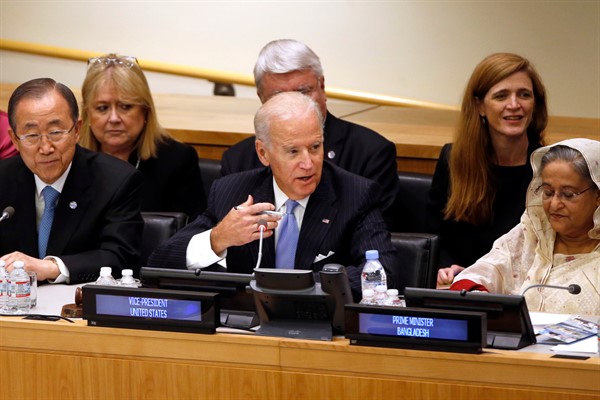Over the past four years, America’s relationship with the United Nations underwent a dramatic shift, as the U.S. undermined, withdrew from or threatened withdrawal from some of the most important multilateral organizations, processes and accords. These include the Iran nuclear deal, the Paris climate agreement, the U.N. Human Rights Council, the World Health Organization and the World Trade Organization, to name a few.
But it isn’t just America that drew away from multilateralism. Major and middle powers around the world have distanced themselves from multilateral institutions to embrace more naked forms of nationalism. This has led to greater risks of direct confrontation between countries and a near-total paralysis within the U.N. Security Council. As a result, President-elect Joe Biden will not be able to rescue multilateralism on his own. But four shifts in U.S. policy would certainly help revitalize the U.N. at a time when international cooperation is needed more than ever.
Go Beyond Paris. Biden has already signaled his intent to rejoin the Paris climate accord, in line with his call for a clean energy revolution. Perhaps no other step will do more to reinvigorate what Secretary-General Antonio Guterres has called the U.N.’s top priority, and it will be crucial to holding other countries accountable for their commitments under the deal.

